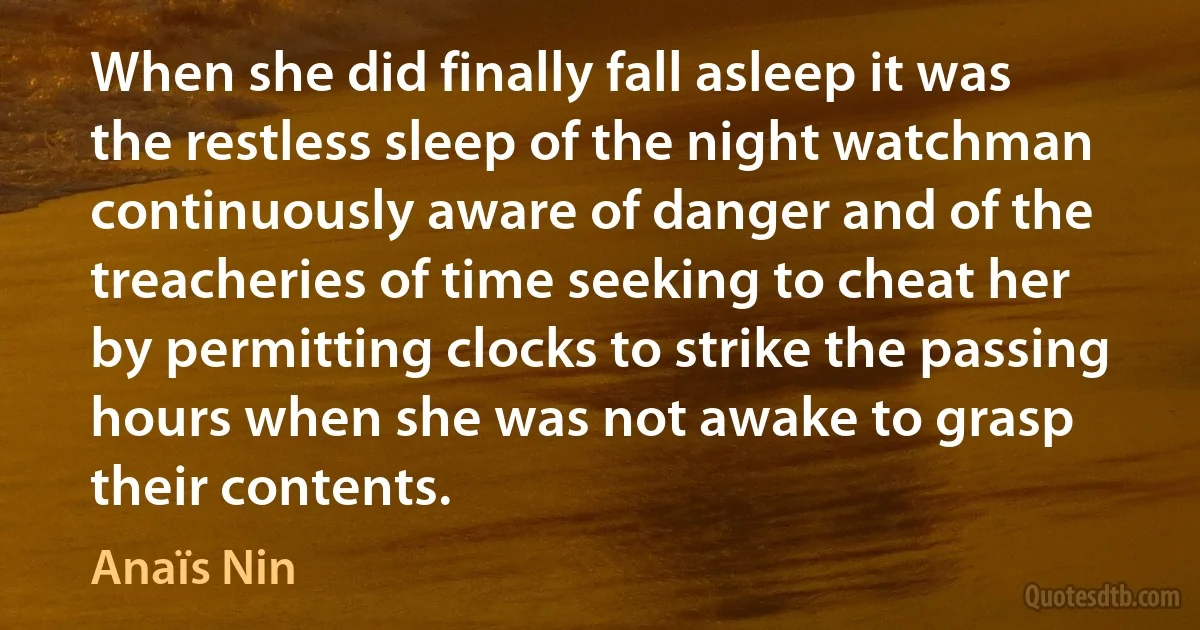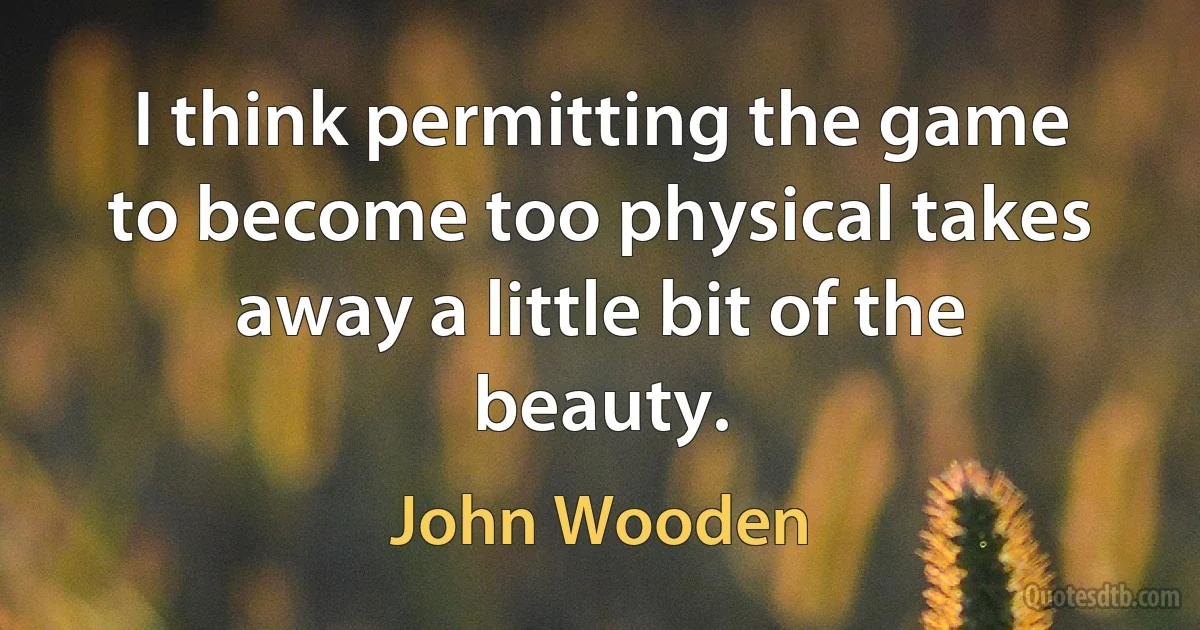Permitting Quotes - page 2
Purification of the soul ... consists in scorning the pleasures that arise through the senses, in not feasting the eyes on the silly exhibitions of jugglers or on the sight of bodies which gives the spur to sensual pleasure, in not permitting licentious songs to enter through the ears and drench your souls.

Basil of Caesarea
I do not know a greater fault in the nurture of children than the conniving at the wanton acts of barbarity which they practise at an early age upon innocent insects; the judgment of that parent must be exceedingly defective, or strangely perverted, who can proportion the degree of cruelty to the smallness of the creature that unfortunately becomes the sufferer. It is but a fly, perhaps he may say, when he sees his child pluck off its wings or its legs by way of amusement; it is but a fly, and cannot feel much pain; besides the infant would cry if I was to take it from him, and that might endanger his health, which surely is of more consequence than many flies: but I fear worse consequences are to be dreaded by permitting it to indulge so vicious an inclination, for as it grows up, the same cruelty will in all likelihood be extended to larger animals, and its heart by degrees made callous to every claim of tenderness and humanity.

Joseph Strutt
Nature has done well and wisely, in not permitting a man to live forever and in bringing into the world ever new generations. An old person is a used-up machine [... He] has too many dogmas to [...] easily [...] believe in a new truth [...]; too many sympathies and antipathies [...] for him to come to love something unfamiliar; [...] too many habits to be able to settle on new ways. Let us add suspiciousness - the fruit of bitter experiences; a pessimism inseparable from all manner of disappointments; and finally, a general decline of powers from exhaustion [...].

Bolesław Prus
About three decades ago, when I needed to purchase some office equipment, chiefly steel filing cabinets, I was amused by a firm whose computer, having been informed that R. P. Oliver was the purchasing agent for R. P. Oliver, offered the former a secret "kick back" of 20% if he would buy their products at the expense of the latter. Another firm offered the purchasing agent a "complimentary" woman's mink jacket, which would be sent with his compliments to "any address," thus tactfully permitting him to choose between his wife and his doxy. That would have been good business, had the computers been operated by someone with intelligence enough to notice the odd coincidence between the name of the purchasing agent and the name of the owner to be exploited.

Revilo P. Oliver
The equilibrium price level is determined at the point where the money market is in equilibrium. The temporary suspension of Walras' Law, far from making economic nonsense, thus appears as the crucial "trick" by which the tatonnement process is decomposed in two parts.
This analysis confirms that for a neoclassical general equilibrium system with neutral money there is indeed a consistent decomposition procedure, based on appropriate compensation principles, permitting the determination of real variables in the real sector while the price level is determined in the monetary sector. However, the amount of intellectual effort which, in the wake of Lange and Patinkin, was devoted to this issue, is entirely out of proportion to its economic significance. The real economic question is not whether a system can be dichotomized, but whether money is neutral.

Jürg Niehans
McGraw was an improviser, a teacher. He brought much to the game that keeps baseball fresh and suspenseful today-the hit-and-run play, the steal, the squeeze play, the uses of the bunt and the defenses against it. He helped turn the game into a thing of fluid beauty, infielders charging the plate or roaming far from their bases, outfielders moving with each pitch, racing in for base hits before them, backing each other in the outfield, entering the infield itself on rundown plays. Yet when the game changed radically, with the introduction of the livelier baseball, McGraw naturally shifted to a power emphasis, founding his team about such men as George Kelly, Bill Terry, Mel Ott. He knew, too, that the old pitching style of permitting a man to hit a deadened ball because it would then be caught in the big fields had to be changed, and his staffs led the league year after year in strikeouts, in earned-runs.

Arnold Hano
Prostitution/trafficking/pornography systematically discriminate against women, against the young, against the poor and against ethnically subordinated groups. Specific acts commonly perpetrated against women in prostitution and pornography are the same as the acts defining what torture is: verbal sexual harassment, forced nudity, rape, sexual mocking, physical sexual harassment such as groping, and not permitting basic hygiene. The psychological consequences of these acts are the same whether it is named state-sponsored torture or prostitution.

Melissa Farley
Today, human trials to defeat Parkinson's are underway in Sweden. In Israel, macrophages scavenger cells that eat debris in the body, are being used to repair the damaged spinal cord within 2 weeks of injury. The first human subject was a 19-year-old girl from Colorado. Last week, the House of Lords in the United Kingdom passed legislation permitting research on cloned human embryos for the second time.
Those are not rogue nations behaving irresponsibly. They are allies, no less moral than we are.

Christopher Reeve
It's strange-you know, the Net is denounced as austere, the product of the engineering mentality, so forth and so on. It's the most feminine influence that Western civilization has ever allowed itself to fall under the spell of. The troubadors of the fourteenth century were as nothing compared to the boundary-dissolving, feminizing, permitting, nurturing nature of the Net. Maybe that's why there is an overwhelming male preference for it, in its early form, because that's where that was needed. But it is Sophia, it is wisdom, it is the penetrating archetypal female logos of the world-soul, leading us away from what was very sharp-edged and uncomfortable and repressive to our creativity and our sexuality and our relationships to each other and to the Earth.

Terence McKenna
Permitting nonviolent protest improves the image of the state. Whether they mean to or not, nonviolent dissidents play the role of a loyal opposition in a performance that dramatizes dissent and creates the illusion that democratic government is not elitist or authoritarian. Pacifists paint the state as benign by giving authority the chance to tolerate a criticism that does not actually threaten its continued operation.

Peter Gelderloos



